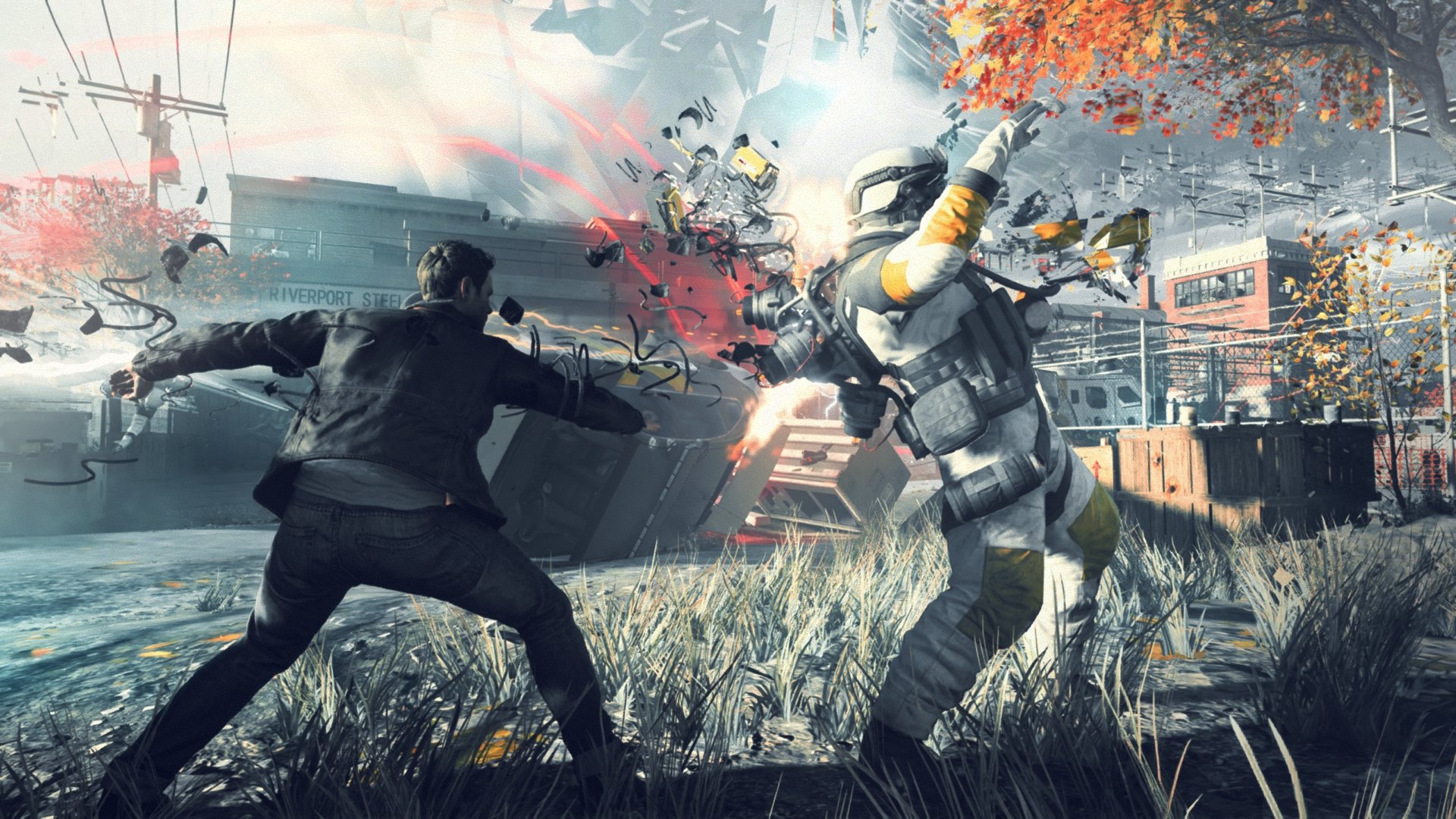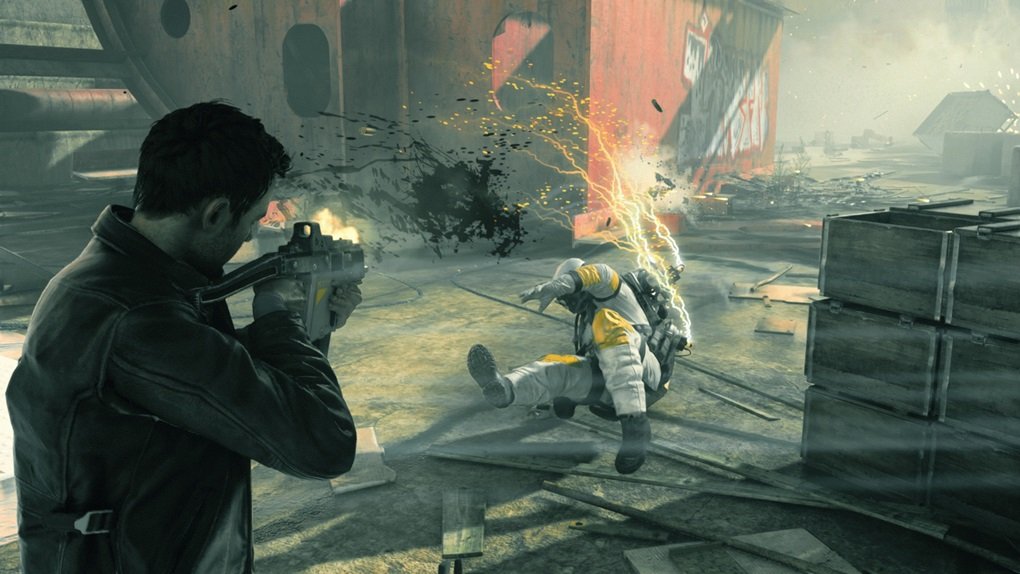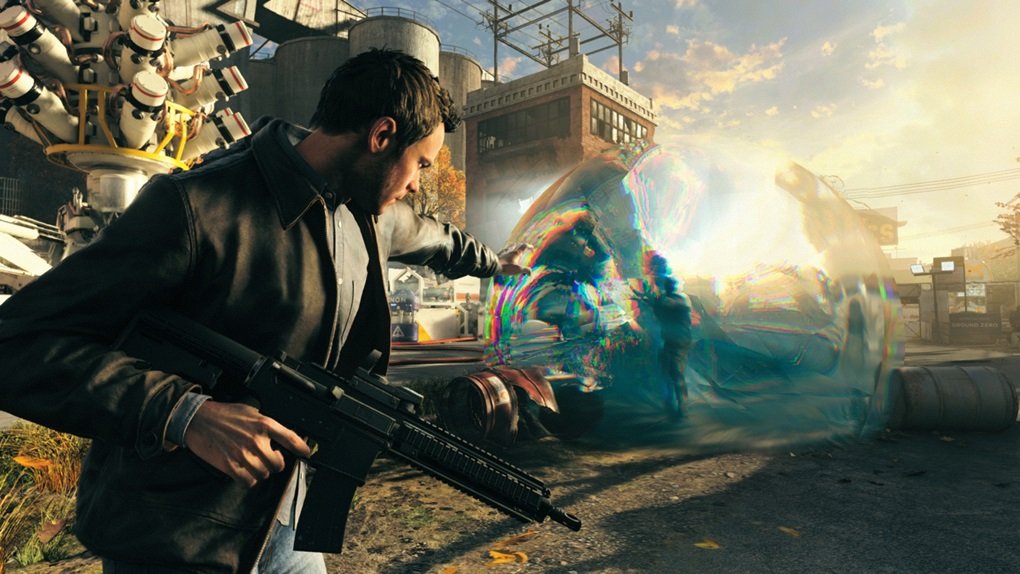Quantum Break's arrival on PC won't hurt the Xbox One
This week, Microsoft announced that its upcoming third-person shooter, Quantum Break, will be seeing a PC release. Some Xbox fans didn't take the news well.


Despite being previously advertised as an in-house exclusive to the Xbox One, Quantum Break will now be available on Windows 10, parallel with the console release on April 5th. Alongside this announcement it was revealed that digital pre-orders will be paired with complimentary copies of Alan Wake and its DLC via Xbox One backwards compatibility. Pre-orders also include a pre-paid code for Quantum Break via the Windows 10 Store, which supports cross-platform save syncing with the Xbox One version. This is a similar model to Microsoft's existing cross-buy feature, which enables certain purchases and game data to be unified across the Microsoft ecosystem, translating between multiple Windows 10 devices.
The announcement was followed by a surprising backlash from die-hard Xbox fans, who claimed it signalled Microsoft's lack of devotion to the Xbox One. Some fanatics went as far to address directly Xbox head Phil Spencer, claiming that they were cancelling their Quantum Break pre-orders to express their stance on the practice.
On the surface, it may seem that Microsoft is refocusing efforts towards the growing PC gaming market, but a much deeper scheme is currently in play.
A good deed to all gamers
The backlash from the Quantum Break deal is hard to justify, as it doesn't affect the personal experience of the user. If anything, this is a form of elitism, left brewing from the 'console wars'. The proposed distribution of Quantum Break benefits both Xbox One and PC gamers while simultaneously pushing downloads through Microsoft's own online storefronts. Titles exclusive to the Xbox platform are an efficient method of shifting units but restricts the potential reach of these experiences.
For players who game exclusively on a Windows PC, this type of deal will open up a new library of top-tier titles backed by substantial investments. These titles will be served through the Windows Store, and build upon Microsoft's library of triple-A experiences on Windows 10. This extends the game's reach to millions of new potential buyers, which in turn, will return more sales. Owners of both an Xbox One console and a gaming PC also will see benefits from this strategy, with two copies of the game being offered for a single price, on top of the additional bonus content. This will be significantly complemented by Quantum Break's cross-save functionality, allowing players to take a single experience between multiple devices. This comes back to Microsoft's vision, where the software and applications move with the user, across a range of various devices.
Gamers who use the Xbox One as their only gaming system will see indirect advantages of such deals, thanks to the additional revenue Microsoft gains from PC sales. This can be invested in improving the Xbox experience for both Xbox One and Windows 10 gamers, and helping fund future first-party titles.

Hardware doesn't yield immense profit
Manufacturing Xbox One hardware isn't hugely profitable. This fact has been established for some time now and was even prevalent during the previous console generation. Microsoft's greatest profits can be seen in licensing and software sales, where the company's services and branding are loaned out for use from third parties.
All the latest news, reviews, and guides for Windows and Xbox diehards.
"Manufacturing console hardware isn't hugely profitable. This fact has been established for some time now."
Additional content and features provided as a bonus alongside digital copies of games on the Xbox and Windows Store drive purchases from these Microsoft-owned marketplaces. When software is sold through the company's own channels, licensing and packaging costs can be cut, leaving more money to be reassigned to other Xbox-related properties and services.
Hardware alone isn't printing money, but this doesn't mean that Xbox consoles are scheduled to be eradicated over the coming years. With console profits being so low, software across Xbox One and Windows 10 is used to make both these platforms profitable. Removing Xbox consoles from the equation disrupts the universal Windows 10 vision, where the platform acts as the operating system's presence in the living room.
Quantum Break is a perfect title to usher in this trend of simultaneous Windows 10 releases, due to the nature of the game's formula. The single-player cinematic gameplay is the main reasoning here, reducing the title's potential replayability. These pre-order incentives will lure more gamers into locking down a digital copy, reducing post-launch redistribution. Unlike Microsoft's well-established properties, the hitch of a lesser-known franchise such as Quantum Break can be reduced by promoting its cross-buy feature, further widening the game's reach.

Xbox still has a place at Microsoft
The industry frequently suggests that the Xbox One will be Microsoft's last attempt at a video game console, as a result of the console's numerous hiccups. While Xbox hardware profits aren't paying the bills, the console is a fundamental element of the Windows 10 ecosystem. Phil Spencer, Microsoft's Head of Xbox, has all but confirmed that a successor to the Xbox One is in the works, in a recent interview discussing Xbox's future.
The Xbox One is Windows 10's presence in the living room and acts as a vehicle for connecting with mass-market consumers. The console is the only product from Microsoft that has a large mainstream following, which in turn, enables the average consumer to connect with the corporate giant.
Microsoft's focus is seen as software and services, and this is now more prevalent than ever with the growing interest in cloud solutions. This is highlighted in the firm's latest earnings report, where the company focused on active Xbox Live users and engagement, rather than console units shipped. This omits the Xbox One hardware sales that are significantly lower than the PlayStation 4, but also shows the company's focus on Xbox software, services, and the profits they entail.

Supporting the Windows 10 vision
"Microsoft now aims to unite Xbox One and PC gaming."
For Microsoft, the Xbox brand is the central component of their entertainment ecosystem. The brand is no longer associated with a series of consoles but rather represents Microsoft's gaming services across their operating systems. Windows 10 has been designed with a universal kernel across platforms, which allows applications and experiences to be similar, if not identical, across devices of all different form factors. The idea of cross-buy suitably ties in with this vision, allowing the player to access their content and data across interconnected devices, at no additional cost. With Windows 10 now receiving polish after a successful launch, features such as cross-buy and cross-play are required to further unify the platform.
Releasing Quantum Break for PC exclusively for Windows 10 drives downloads of the operating system, and keeps the title closely integrated into a single ecosystem. Microsoft now aims to unite Xbox One and PC gaming, with offers like these playing a major role in the unification of Windows 10. Distributing the title to a larger audience is in no way a bad thing, and will come back to benefit Xbox users over the coming years.

Matt Brown was formerly a Windows Central's Senior Editor, Xbox & PC, at Future. Following over seven years of professional consumer technology and gaming coverage, he’s focused on the world of Microsoft's gaming efforts. You can follow him on Twitter @mattjbrown.
